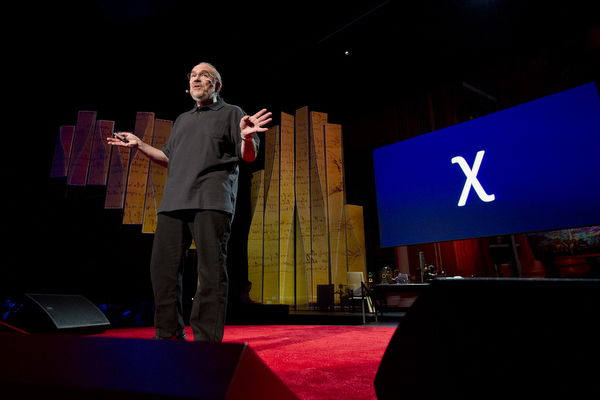Photo: James Duncan Davidson
The last time we heard from Terry Moore, executive director at the Radius Foundation, he challenged us to reexamine a process that most of us have known how to do nearly as long as we could read: tie our shoes. He returns to the TED stage today to share another valuable tidbit on a character we really have known as long as we could read: the letter “x”.
In mathematics, the letter “x” represents the unknown variable. It is also, arguably, one of the most popular letters in the pack. We see it everywhere: Generation X, the X-Files, and our favorite, TEDx.
So why does “x” represent the unknown?
A few years ago, Terry tells us, he decided to begin learning Arabic. He found it to be a language that was extremely precise and chock-full of information. Learning the language, and even speaking it, is similar to crafting a mathematical equation. Perhaps this is why everything we know as science, engineering, and mathematics has its derivations in the Arabic language system, most notably, algebra.
When Arabic texts made their way to Spain in the 11th century, Europe wanted to translate this mathematical wisdom of the East into a written, Western language. Attempts to do so, however, proved to be problematic. As it turned out, Arabic sounds do not translate well into European patterns of speech, nor are there ample characters to represent these sounds.
An Arabic word meaning “the unknown thing,” a word used throughout early mathematical proofs, contained the Arabic letter “sheen.” The problem was, Moore explains, there was no “sh” sound in the Spanish language. So, the language crafters borrowed the “ka” sound from the Greek letter χ or “chi.” Later, chi was replaced with the Latin X. And once the material was translated into Latin, it formed material for math textbooks that we continue to read today.
So why is the letter “x” the unknown?
Because you can’t say “sh” in Spanish!

Comments (4)
Pingback: Blog » Blog Archive » Why is the letter “x” the unknown?
Pingback: TED Blog | A brief history of classical music: Michael Tilson Thomas … | Jan Bergmans Weblog